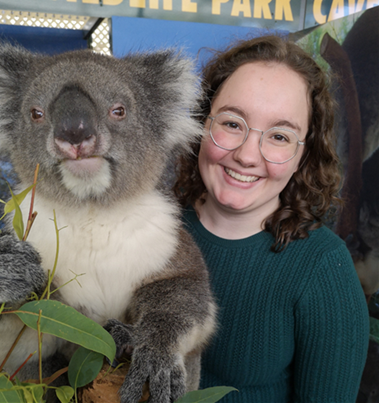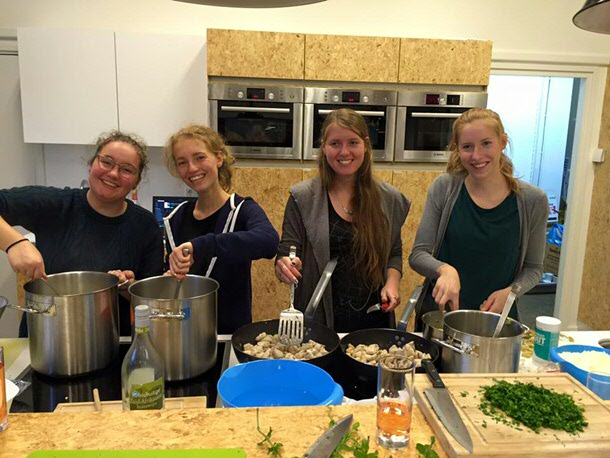Dora van Elk
Let us learn more about Dora in this Alumn interview.
Major: Health and Life Sciences
Further education: Pre-master medicine, Master Medicine
Current position: Co-assistant / Medical intern
Location: Treant, a group of hospitals and nursing and elderly care in the Netherlands
A short introduction
When did you graduate from UCG?
I graduated in 2017, as part of the first class at UCG.
What do you do now and where? Can you share some insight on how to become a doctor after UCG?
After UCG I did the Pre-Master Medicine at the RUG, which is a one year programme. After completing this, I started the Master programme of Medicine.
In the first year I had internships in Groningen. During my second year my internships took place at Treant, including the hospitals in Emmen, Hoogeveen, and Stadskanaal. I’m currently half way through my second Master year. After the third year of the Master programme, I will graduate as a primary care physician (or 'basisarts' in Dutch), after which I can continue studying by specialising.
At the time, UCG was granted two places in the Pre-Master Medicine programme for students at UCG that excel in Health and Life Sciences and are interested in becoming a doctor. The Pre-Master programme is fully in Dutch, so it is required to be proficient in Dutch before starting the Pre-Master Medicine. Students who do not get one of these spots can always enter the Pre-Master through a selection process including a test. After completing the Pre-Master, you begin with the Medicine Masters. During the Master you get practical experience in the medical field.
"An important skill I learned at UCG is the flexibility to adapt - You are responsible for planning your studies, you have more freedom in choosing courses."
Being a UCG Alumn
Which skill(s) you learned as a Liberal Arts and Sciences graduate would you say is the most useful now for your career?
An important skill I learned at UCG is the flexibility to adapt. From UCG classes, to classes at the Faculty of Science and Engineering, working as Secretary in the Faculty Council, to cooking food as part of the Sleeping Lasagnas (evidence at the end of this interview). Being able to adapt has been an important skill while studying Medicine. As a medical student you do internships in the hospital for 4-5 weeks and then move to a new speciality. Internal medicine, surgery, gynaecology, and neurology. You try out multiple specialities within the years of study. You even visit different hospitals.
I completed my first year at the University Medical Center Groningen (UMCG), and am now doing my second year at Treant, a collective of 3 hospitals. So, every few weeks I move to a different speciality in a different part of the hospital, with different colleagues. Being able to adapt is definitely an important skill.

How did you experience your transition from studying at UCG to a graduate program? Was it smooth or challenging coming from UCG?
The transition from UCG to the Pre-Master programme was challenging.
First of all, every lecture and class changed from English to Dutch, which took some adjusting.
Second of all, the method of studying is different between UCG and Medicine studies. At UCG you are responsible for planning your studies, you have more freedom in choosing courses, which meant that I got to plan my studies and choose the subjects that I was interested in (to some degree) such as neurosciences. While for medicine studies the courses and subjects are all pre-planned and there is no need to make choices.
Thirdly, during the Medicine studies you study to pass multiple choice exams. In contrast, UCG taught me to study for open questions, which requires a different method of studying. So, when I started with Pre-Master Medicine I had to alter the way I studied subjects for exams.
Any tips/advice for new and current UCG students?
Mental Health is important. Studying can take up a lot of your time, leaving little time to relax and recharge. Mental health problems can affect your energy level, concentration, and optimism, which hinders your ability to study. Thus, it is important to save some time for yourself: relaxing, reading a book, watching a series or movie, or spending time with your friends.
“An empty lantern provides no light. Self-care is the fuel that allows your light to shine brightly.”

| Last modified: | 31 March 2021 07.53 a.m. |
